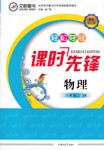题目内容
【题目】听下面一段较长对话,回答以下小题。
【1】What does the man do?
A.A tour guide.B.A hotel clerk.C.A travel agent.
【2】What does the man say about the bed-sitting room?
A.It can’t provide enough beds.
B.Its price is a bit too high.
C.It is close to the beach.
【3】When does the conversation probably take place?
A.In May.B.In July.C.In September.
【4】What does the woman have to do before phoning the man again?
A.Consult her parents.
B.Prepare a travel schedule.
C.Have a talk with her friends.
【答案】
【1】C
【2】C
【3】A
【4】C
【解析】
【原文】
M: Can I help you?
W: Yes. I know it’s rather late for a reservation, but we are three friends, and we’d like to travel to Greece in July.
M: Where would you like to stay?
W: We’ve been told Mykonos is one of the best islands there. Would that be possible?
M: Quite difficult in July. Anyway, how long would like to stay?
W: Two weeks. And, um… we cannot spend more than 100 a day.
M: For that price you won’t have many choices, I’m afraid. But let me find out. If you could arrange to make it in late June, I might have a bed-sitting room for 75. It could provide 3 single beds, and it’s 5 minutes’ walk from the main beach.
W: What’s the name of the beach?
M: Super Paradise.
W: Just fancy! My parents went there on their honeymoon and they still keep advising people to go there! I need to talk it over with my friends, though.
M: Well, talk with your friends, come to an agreement and give me a ring again. Remember we only have a month left, so you need to make up your mind today or tomorrow!
W: I will, thank you.

 文敬图书课时先锋系列答案
文敬图书课时先锋系列答案